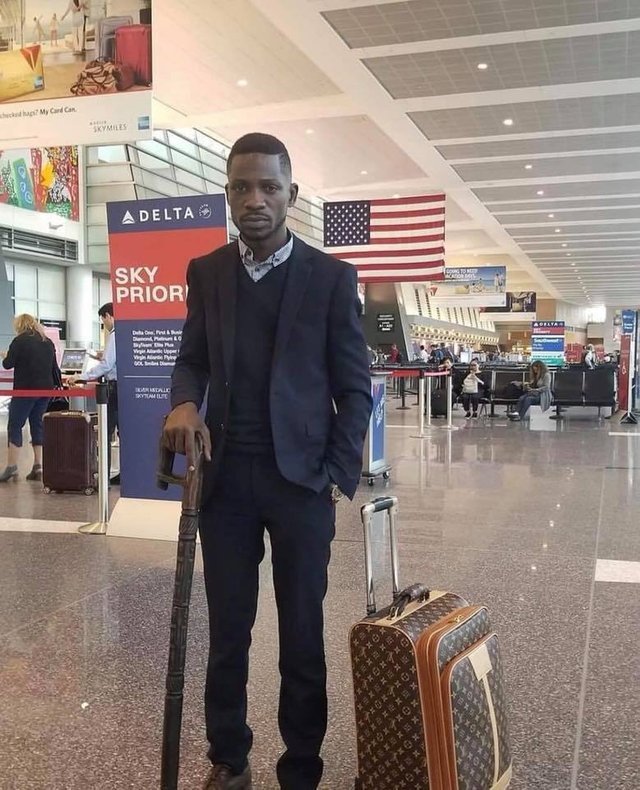MUSIC AND POLITICS IN UGANDA

Scaring Ugandans president supporter off stage at the Taurus Riley show is unjustifiable and justifiable depending on whether you employ the lens on your phone camera or the record breaking Canon 5200mm F/14 Mirror Lens.
Now, just because different audiences relate differently to the involvement of music in politics doesn't mean there is no connection between the two.
Let's begin with a flashback to the time when native South Africans were struggling through apartheid.
A lot of music by black folks and other sane minded artists from the rest of the world was seen as a pathway to enlighten the masses by detailing the wrongs that needed righting.
It is this music that the apartheid government was quick to censor or ban. At a certain time, songs by Miria Makeba and Hugh Masekela would only be played in your bedroom at low volume because it was illegal to be found playing them in public.
These artists were persecuted and they ended up fleeing their country although they never stopped being the voices of the voiceless continually recording the kind of music that one could refer to as anti-establishment and/or protest themes. The musicians that failed to flee the country were locked up and others ended up dying under mysterious circumstances.
This wrath of the apartheid government did not spare musicians that had no political affiliation (unlike the husband of Zuena whose political affiliation is public knowledge) yet had voiced their opinion through anti-war songs.
Fast forward to Uganda 2015 when Ugandan TVs were awash with the pro-establishment campaign song Tubonga Nawe where Bebe was class monitor.
Of course it's true that our president in Uganda understands that music will always have a place in politics and that's why he allowed to have musicians in military uniform to compose songs that not only boosted morale of the NRA rebels to fight on but also encouraged citizens to support the cause to liberate Uganda.
See, musicians like the Beatles, rolling stones and the Musicians Association in the UK would not have boycotted events organized by the apartheid government after the 1960 Sharpeville massacre if music and politics were not related.
Again in the UK, musician Steven Van Zandt and record producer Arthur Baker formed an anti apartheid movement known as ARTIST UNITED AGAINST APARTHEID.
Furthermore, some forms of music can invoke thoughts of political backing which when interpreted as such may attract the wrath of the state in methods intended to suppress these voices since they almost always appeal to younger people as voices of social change.
Here in the pearl of Africa music has been used to influence social change as seen from music by Philly Bongoley Lutaaya that was purposed to give Aids a face and still fight stigma that patients experienced then and now.
Bottom line.
Given the right historical aesthetic qualities, popular musicians can draw people together to forge effective political communities.
Some people in the crowd were not so tolerant to Bebe's presence on stage. However much I agree that this was not the most right way to do the #tubalemese, these elements of the crowd should be blamed singularly.
Your post was manually selected by @edje and rewarded by @illuminati-inc (IINC) with the support of Curie. About IINC: here.